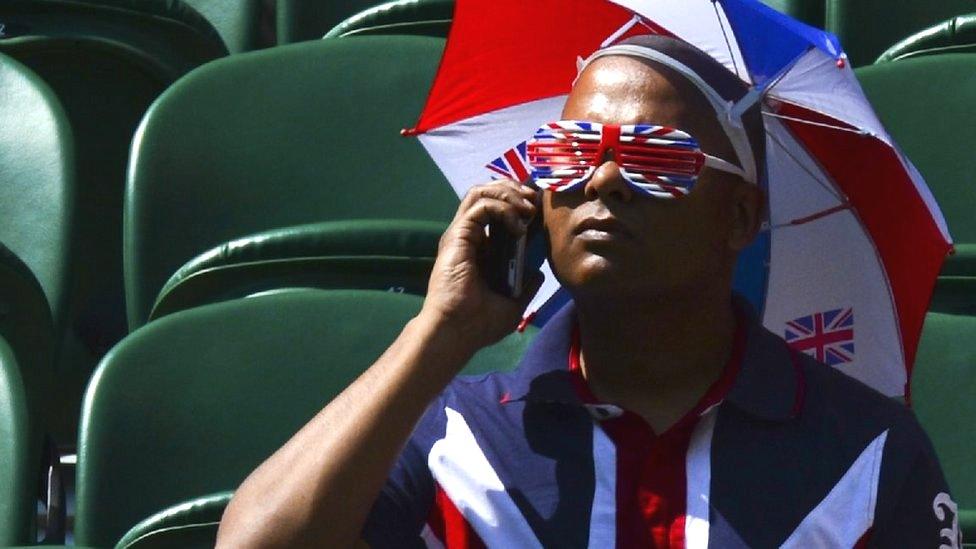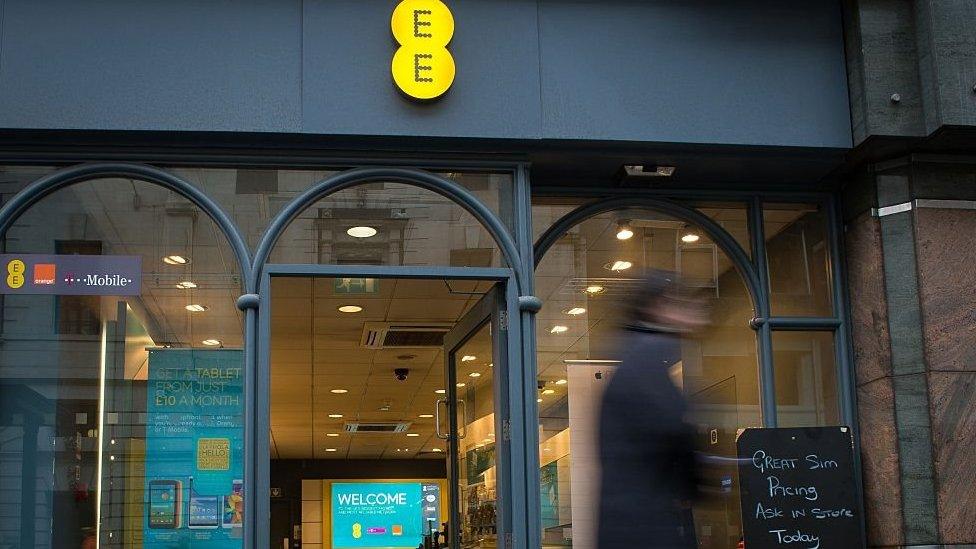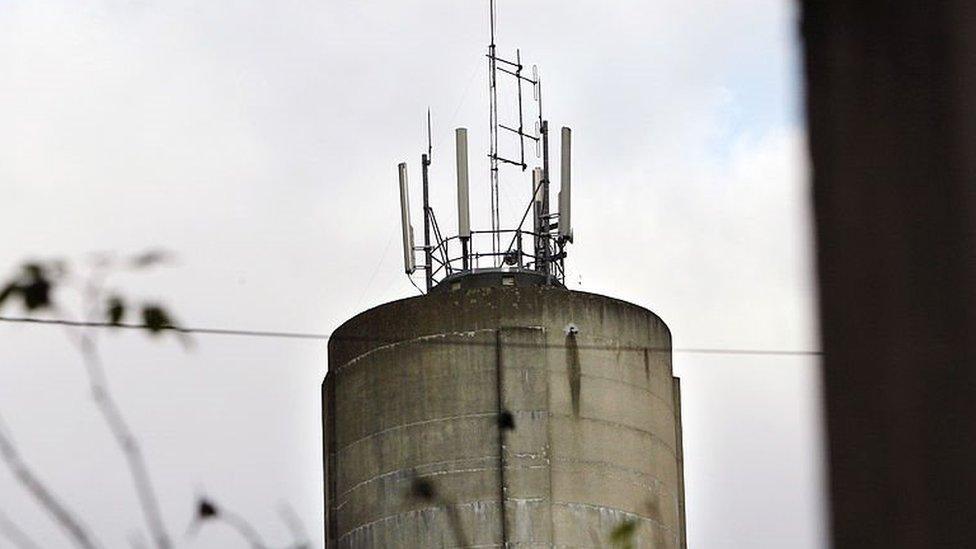Three calls for curb on BT’s mobile ambitions
- Published

Spectrum previously used by the Ministry of Defence and sports broadcasters will soon be auctioned off
BT is already in the firing line over its dominant position in the broadband market, with pressure on the regulator, Ofcom, to be tougher in policing it. Now, there is a call for the telecoms giant's wings to be clipped in its new role - as the UK's most powerful mobile operator.
When the year began, it looked as though we would soon have just three giant players slugging it out in the mobile market. BT's merger with EE, and Three's takeover of O2 would leave them battling Vodafone for supremacy.
But while the first merger went ahead, the second was blocked by the European Commission. That ruling came with the full backing of Ofcom, which had warned that a reduction from four to three operators would be harmful to consumers.
Three - owned by Hong Kong's Hutchison - had spent 18 months planning for a future in which it would be the biggest noise in the UK market. On Tuesday morning, still seething about the ruling, it has warned that the result has been to create exactly the conditions that Ofcom feared.

Mr Dyson wants BT to own a lower percentage of the UK's mobile network spectrum
Its chief executive, Dave Dyson, told me that prices are now going up and competition is on the wane.
He said it was because two players now had the lion's share when it came to spectrum, the electromagnetic waves Mr Dyson described as the "lifeblood" of any mobile operator.
He points to figures indicating that:
BT/EE has 42% of the spectrum assigned to the UK's mobile networks
Vodafone has 29%
Three has 15%
O2 has 14%
"If you've got one or two players in the market that dominate spectrum," he said, "then there is always a fear that innovation is slower because you don't have people pushing each other."
Despite the fact that Three has just published some pretty healthy earnings for the first half of the year, he said it could not challenge BT unless it got hold of more spectrum. And that is where he wanted action from Ofcom.
In a much-delayed auction, the regulator is preparing to sell off a healthy chunk of spectrum that has been freed up by the Ministry of Defence. It will provide plenty of capacity for the high-speed data services that are now at the centre of every mobile operator's offering.
But Three's chief executive wanted Ofcom to set the rules to level the playing field in the UK mobile market.
Mr Dyson called for a cap on the total amount of spectrum that any one company could hold - and wanted that set at 30%.
Unless BT/EE sold some of its existing spectrum, that would mean it would not even be able to bid in the forthcoming auction - and Vodafone would be limited in what it could buy.
Mr Dyson said both the big players had plenty of unused spectrum and did not really need any more but were likely to indulge in what strategic bidding.
"If they were to bid on this spectrum, it would most likely be a mechanism to stop ourselves and O2 strengthening our position, which would effectively be anti-competitive," he said.

BT paid £12.5bn for the UK's biggest mobile operator, EE
Now, this piece of sabre-rattling is obviously designed to put pressure on Ofcom, which is expected to launch a consultation on the rules for the auction in the coming weeks.
Sources at BT point out that Three could have bought more spectrum in the last auction but chose not to. Furthermore, the competition authorities had assessed BT and EE's spectrum holdings before letting that merger through and found nothing to worry them.
But for Ofcom, there are now some tricky decisions to be made. To impose the kind of curbs that Mr Dyson is demanding would be tantamount to saying the regulator got it wrong when it backed the merger between BT and EE but lobbied Brussels to block Three's takeover of O2.

The 2.3GHz-3.4GHz spectrum that will be sold is suited to providing fast mobile data
But equally, having come under fire for not requiring BT to sell off the Openreach broadband division, Ofcom will not want to be accused of allowing a new monopoly to grow unchecked.
You might have thought the battle over the shape of the UK's mobile market was over - but it looks like it has just moved on to a new phase.
Good news for corporate lawyers and lobbyists, who will get plenty of work as the rules of the complex game that is a spectrum auction are decided.